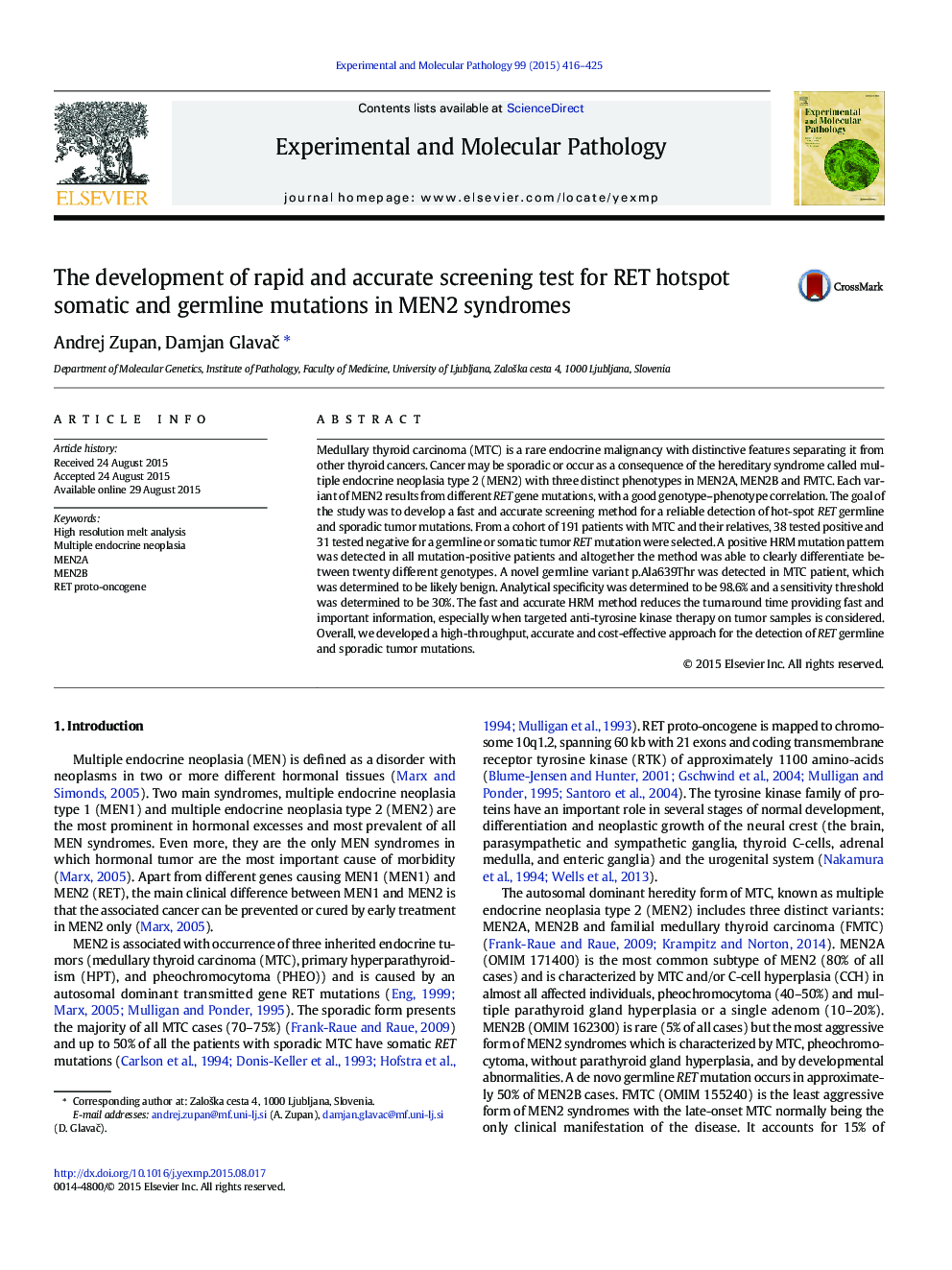| Article ID | Journal | Published Year | Pages | File Type |
|---|---|---|---|---|
| 2774875 | Experimental and Molecular Pathology | 2015 | 10 Pages |
•The development of high resolution melt analysis method for RET mutation detection•Novel germline RET proto-oncogene variant c.1915G > A (p.Ala639Thr)•A novel, high-throughput, accurate and cost-effective approach with faster turnaround time
Medullary thyroid carcinoma (MTC) is a rare endocrine malignancy with distinctive features separating it from other thyroid cancers. Cancer may be sporadic or occur as a consequence of the hereditary syndrome called multiple endocrine neoplasia type 2 (MEN2) with three distinct phenotypes in MEN2A, MEN2B and FMTC. Each variant of MEN2 results from different RET gene mutations, with a good genotype–phenotype correlation. The goal of the study was to develop a fast and accurate screening method for a reliable detection of hot-spot RET germline and sporadic tumor mutations. From a cohort of 191 patients with MTC and their relatives, 38 tested positive and 31 tested negative for a germline or somatic tumor RET mutation were selected. A positive HRM mutation pattern was detected in all mutation-positive patients and altogether the method was able to clearly differentiate between twenty different genotypes. A novel germline variant p.Ala639Thr was detected in MTC patient, which was determined to be likely benign. Analytical specificity was determined to be 98.6% and a sensitivity threshold was determined to be 30%. The fast and accurate HRM method reduces the turnaround time providing fast and important information, especially when targeted anti-tyrosine kinase therapy on tumor samples is considered. Overall, we developed a high-throughput, accurate and cost-effective approach for the detection of RET germline and sporadic tumor mutations.
